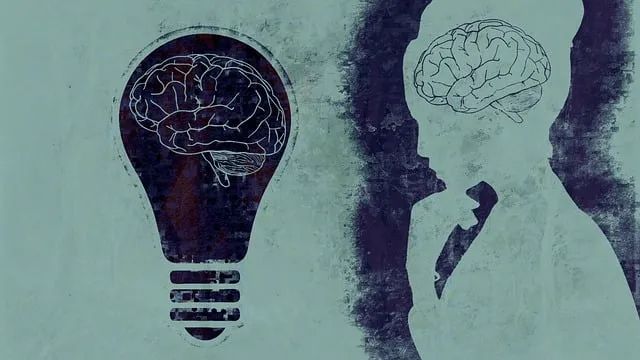The Kaiser Permanente Mental Health Access Center in Longmont offers holistic, culturally sensitive diagnoses and treatment plans, incorporating advanced tools, expert knowledge, and evidence-based practices like CBT and DBT. They provide personalized guidance, resources for caregiver support, and tailored programs like Trauma Support Services to enhance mental wellness through collaborative care models.
“Navigating mental illness can be challenging, but understanding your options is the first step towards recovery. This comprehensive guide, designed for Kaiser Permanente members at the Kaiser Permanente Mental Health Access Center in Longmont, offers valuable insights into managing and overcoming mental health struggles. From recognizing diagnoses to accessing support and decoding therapy types, each section equips readers with tools to navigate their treatment journey effectively.”
- Understanding Mental Illness Diagnoses at Kaiser Permanente Longmont
- Navigating Treatment Options: A Guide for Kaiser Members
- Accessing Mental Health Support: Practical Steps for Patients
- Decoding Therapy Types: What Works Best for You?
- Building a Supportive Network: Connecting with Caregivers
Understanding Mental Illness Diagnoses at Kaiser Permanente Longmont

At Kaiser Permanente Longmont’s dedicated mental health access center, understanding mental illness diagnoses is a cornerstone of patient care. The center offers comprehensive services tailored to individual needs, ensuring that each patient receives an accurate diagnosis and evidence-based treatment plan. Mental health professionals employ advanced assessment tools and clinical expertise to identify various mental health conditions, from depression and anxiety disorders to more complex cases. This meticulous approach involves in-depth evaluations, patient interviews, and sometimes specialized tests, all aimed at pinpointing the root causes of psychological distress.
The center’s focus extends beyond diagnosis to integrating evidence-based practices like Stress Reduction Methods, emphasizing holistic care. Cultural sensitivity in mental healthcare practice is also a key aspect, reflecting an understanding that diverse backgrounds influence how individuals experience and express mental illness. Furthermore, resilience building is incorporated into treatment modalities, empowering patients with coping strategies to navigate life’s challenges.
Navigating Treatment Options: A Guide for Kaiser Members

Navigating Treatment Options for Kaiser Members seeking Mental Health Support
At Kaiser Permanente’s Longmont Mental Health Access Center, we understand that finding the right treatment path can be a complex journey. Our dedicated team is here to guide members through this process, ensuring they receive personalized care tailored to their unique needs. We offer a comprehensive range of services designed to address various mental health concerns, from anxiety relief and stress management to intensive therapy for more severe conditions.
Our center prioritizes emotional regulation strategies, focusing on evidence-based practices shown to be effective in managing symptoms and improving overall well-being. Through individual therapy sessions, group support programs, and collaborative care models, we empower members to take charge of their mental health. Additionally, our staff remains up-to-date with the latest research in Mental Health Policy Analysis and Advocacy, ensuring members benefit from evolving treatment paradigms and a supportive network dedicated to their recovery journey.
Accessing Mental Health Support: Practical Steps for Patients

Accessing mental health support is a crucial step for any individual striving for improved mental wellness. For patients in and around Longmont, the Kaiser Permanente Mental Health Access Center offers a dedicated resource. This center serves as a one-stop shop, providing easy access to professional care and a range of services tailored to diverse needs.
Patients can take practical steps to navigate this process. Firstly, they should familiarize themselves with the center’s offerings through their website, which outlines various programs and specialist areas. Empathy building strategies, for instance, are often used to foster understanding and connection between patients and therapists. Additionally, many centers offer mood management workshops and group sessions, empowering individuals with tools to regulate their emotional states. Making an initial inquiry or scheduling a consultation is the next step, leading to personalized guidance and, ultimately, tailored treatment plans.
Decoding Therapy Types: What Works Best for You?

Navigating therapy options can feel overwhelming, but understanding different types is a crucial step in your mental wellness journey. Kaiser Permanente Mental Health Access Center Longmont offers a range of evidence-based therapies tailored to individual needs. For instance, Cognitive Behavioral Therapy (CBT) is an effective approach for treating depression prevention and various anxiety disorders by identifying and changing negative thought patterns. On the other hand, Dialectical Behavior Therapy (DBT) focuses on emotion regulation, distress tolerance, and mindfulness skills, making it suitable for those dealing with complex emotions or borderline personality disorder.
Exploring therapy types is an essential part of discovering what works best for you. The Mental Wellness Podcast Series Production at Longmont can also guide you through these options, offering insights and personal stories to help demystify the process. Remember, seeking professional support is a sign of strength, and with the right therapy, significant improvements in mental wellness are achievable.
Building a Supportive Network: Connecting with Caregivers

Building a supportive network is an integral part of navigating mental illness diagnosis and treatment, especially at centers like Kaiser Permanente Mental Health Access Center Longmont. Connecting with caregivers can provide a sense of community and understanding, fostering emotional healing processes that are crucial for recovery. This support system not only offers practical assistance but also serves as a source of encouragement, helping individuals cope with challenges and adhere to their treatment plans.
At the Kaiser Permanente center, resources like Trauma Support Services cater specifically to those dealing with trauma-related mental health issues. These services acknowledge the complex nature of emotional healing processes and offer tailored interventions. Furthermore, Mental Health Policy Analysis and Advocacy plays a vital role in advocating for policies that enhance access to quality care, ensuring that both patients and their caregivers receive the necessary tools and resources to navigate the healthcare system effectively.
Navigating mental illness diagnoses and treatment can be daunting, but the resources available at the Kaiser Permanente Mental Health Access Center in Longmont offer clear guidance. By understanding your diagnosis, exploring diverse treatment options, and building a supportive network, you can take charge of your mental health journey. Remember, seeking help is a sign of strength, and with the right support, healing and recovery are achievable. For Kaiser members in Longmont, leveraging these navigation tools equips you to make informed decisions regarding your mental wellness.






